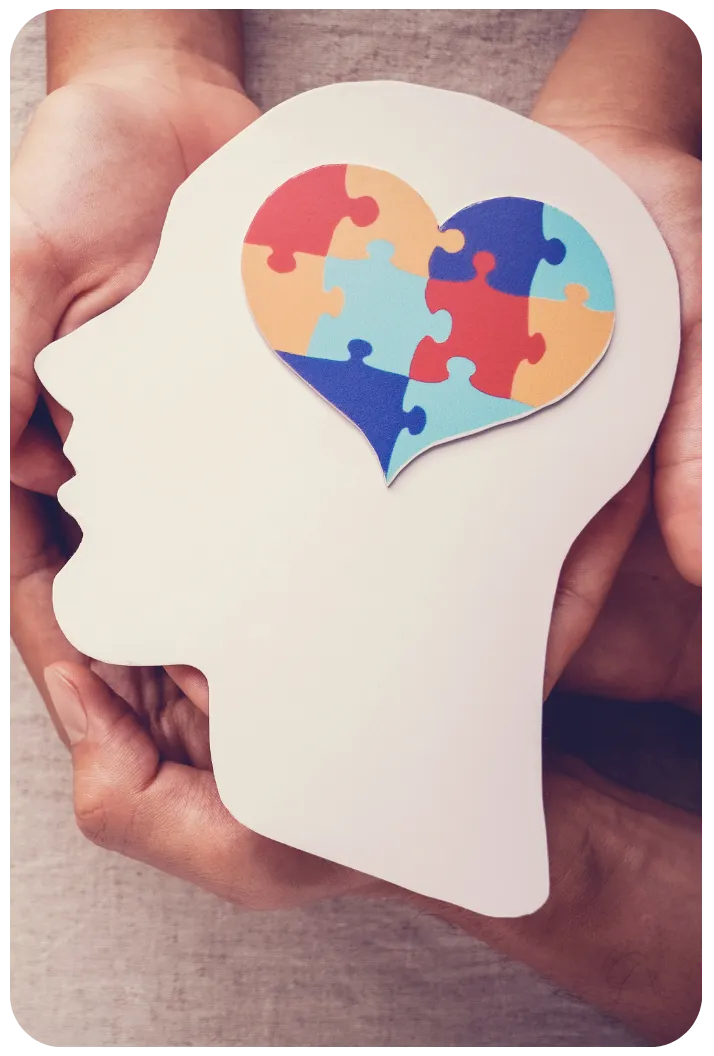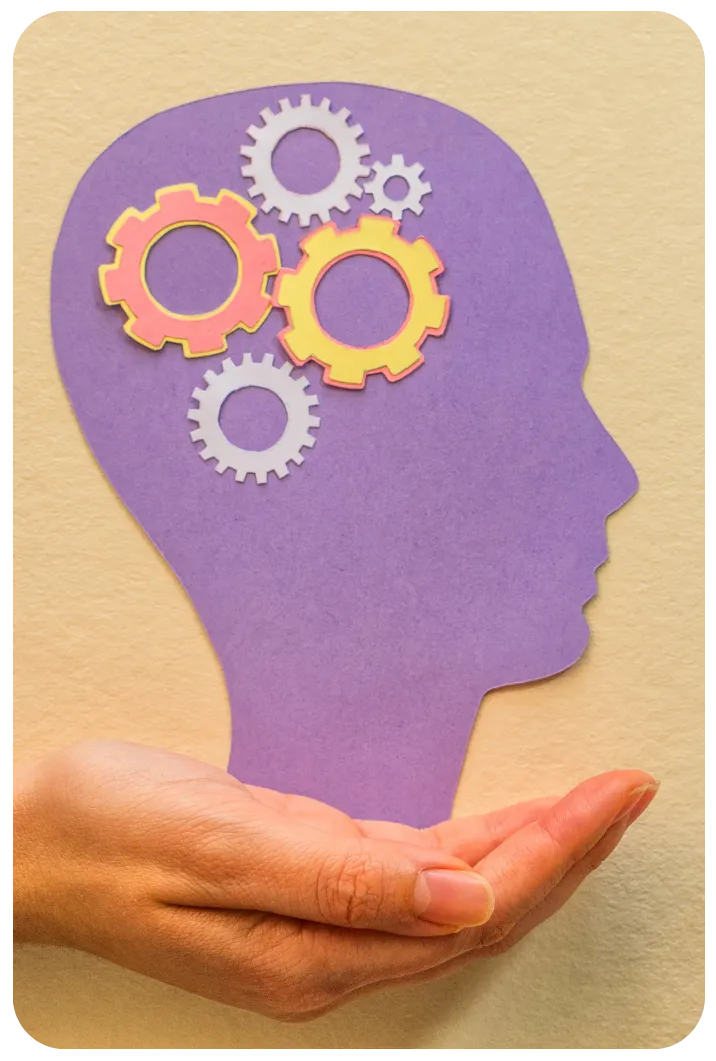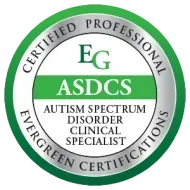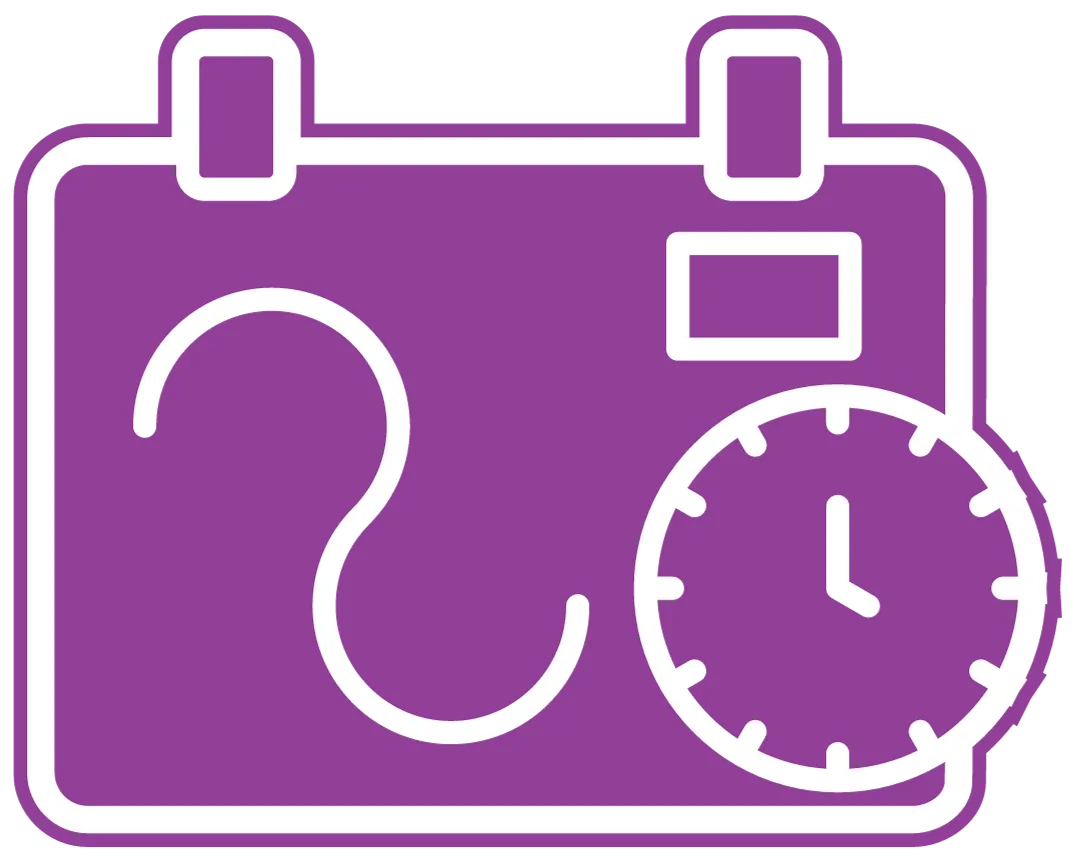

Advanced Neuropsychological Evaluations
for Autism & ADHD - Frisco, TX
Understanding Each Person’s Unique Brain Blueprint—Not Just a Diagnosis
Our evaluations are not the end—they’re the beginning!
At ARC, we are redefining the understanding and appreciation of mental health — not through labels, but through clarity, compassion, and science.
Our vision is to elevate the standard for neuropsychological assessment, resource management, and future treatment for individuals and families with neurodiverse and neurounique needs.
We believe that every brain tells a story worth understanding. Through comprehensive evaluations and personalized support, we empower our clients to move forward with insight, strength, and hope.
Advanced Neuropsychological Evaluations for Autism & ADHD Frisco, TX
Understanding Each Person’s Unique Brain Blueprint—Not Just a Diagnosis
Our evaluations are not the end —
they’re the beginning!
At ARC, we are redefining the understanding and appreciation of mental health — not through labels, but through clarity, compassion, and science.
Our vision is to elevate the standard for neuropsychological assessment, resource management, and future treatment for individuals and families with neurodiverse and neurounique needs.
We believe that every brain tells a story worth understanding. Through comprehensive evaluations and personalized support, we empower our clients to move forward with insight, strength, and hope.
A Unique Therapeutic & Comprehensive
Approach for Every Mind

At The Assessment & Resource Center (ARC), we believe that every brain tells a story — and no two are alike. Our philosophy is rooted in providing comprehensive, therapeutic assessments that uncover how your brain truly functions, not just what diagnosis fits. Rather than using domain-based testing to search for a label, we approach every evaluation with a clean slate — free from assumptions. Through a careful combination of neuropsychological testing, 19-point qEEG Brain Mapping, and clinical insight, we work to uncover, discover, and highlight the unique ways your brain processes the world.
At ARC, Dr. Gayoso and her team don't just interpret data — they deliver a personalized brain blueprint, that reveals your strengths, your challenges, and the most effective next steps forward.
Our commitment is to empower you — or your loved one — with clarity,
understanding, and real direction.

Because you're more than a diagnosis...You’re a story still unfolding
and we're honored to help you write the next chapter.
A Unique Therapeutic & Comprehensive Approach
for Every Mind
At The Assessment & Resource Center (ARC), we believe that every brain tells a story — and no two are alike.
Our philosophy is rooted in providing comprehensive, therapeutic assessments that uncover how your brain truly functions, not just what diagnosis fits.
Rather than using domain-based testing to search for a label, we approach every evaluation with a clean slate — free from assumptions.
Through a careful combination of neuropsychological testing, 19-point qEEG Brain Mapping, and clinical insight, we work to uncover, discover, and highlight the unique ways your brain processes the world.
At ARC, Dr. Gayoso and her team don't just interpret data — they deliver a personalized brain blueprint, that reveals your strengths, your challenges, and the most effective next steps forward.
Our commitment is to empower you — or your loved one — with clarity, understanding, and real direction.
Because you're more than a diagnosis...You’re a story still unfolding — and we're honored to help you write the next chapter.


Dr. Micholyn Gayoso
Clinical Psychologist, Founder, PsyD
Dr. Gayoso is a licensed clinical psychologist who earned her Doctorate in Clinical Psychology from the Texas School of Professional Psychology. Her overall experience includes clinical training in private practice, juvenile and adult correction, and extensive work within the school system. She focuses on conducting neuropsychological, psychological, & educational assessments to assist with differential diagnosis & treatment plan preparation. She is a certified Autism Spectrum Disorder Clinical Specialist, and she has a passion for helping families obtain a comprehensive understanding of the functional needs associated with various neurodiverse conditions.
Dr. Gayoso has extensive experience in a variety of Evaluations, testing for Autism, ADHD, Learning Disabilities, Mood/Personality Disturbance, Psychiatric Diagnostic Considerations, Developmental Delays, & Neuropsychological functioning. It is her belief that proper and accurate testing can ensure the most appropriate direction for treatment interventions.
Dr. Gayoso believes in the positive purpose of a thorough neuropsychological evaluation in order to optimize a client’s treatment plan and intervention schedule. Dr. Gayoso can help individuals and families formulate a personalized plan to target the client’s total need.
The Texas School of Professional Psychology
TSBPP License #37422
Clinical Specialist in Autism
Specialty in Neuropsychology

Psychological Conditions We Treat
We have specialists that treat various DSM-V Mental Health Conditions utilizing trauma-focused therapy, dialectical behavior therapy, emotion-focused therapy, skills training, neurotapping, and neurofeedback
* CLICK HERE FOR PAYMENT & FINANCING INFORMATION *
From Our Clients And Friends
From Our Clients And Friends
- Jed's Story -
- Brittani's Story -
- Taskeisha's Story -
What Is Neurofeedback?
NeuroFeedback - QEEG (Quantitative Electroencephalogram) is a diagnostic tool that measures electrical activity in the form of brain wave patterns. It is sometimes referred to as “brain mapping." Brain mapping is a safe and effective procedure for identifying brain dysregulation and other brain functioning abnormalities. Brain waves can reveal important information about your overall brain function, including stress levels, thought patterns, and emotions. QEEG brain mapping and brain training techniques have successfully helped thousands of patients enhance their quality of life and achieve significant symptom relief.
A QEEG can reveal brain wave patterns that are associated with impulsivity, cognitive inflexibility, anxiety, and other symptoms. Dr. Gayoso and the team at Assessment & Resource Center are focused on a vision to revolutionize the standard of assessment and care for individuals and families with neurodiverse needs! Our mission is to elevate the standard of the patient experience from assessment to resource management and treatment.
At the Assessment and Resource Center, we operate from our CORE VALUES of Honor, Integrity, Compassion, Honesty, Growth and Discipline to consistently uphold the highest standards in the mental health services sector. Our team of experts employs rigorous, evidence-based methodologies to ensure precise assessments and effective interventions.
Our focus on growth drives us to continuously improve and deliver a comprehensive mental healthcare experience.
We are dedicated to providing thorough assessments, fostering a deep understanding of psychological conditions, and applying advanced treatments, including QEEG Neurofeedback.
Our commitment is to build and maintain strong, supportive relationships with each of our clients and patients because we believe that personalized care is crucial for effective treatment. By taking the time to truly understand each individual’s unique brain function and needs, we can offer tailored assessments and treatments that go beyond simple diagnoses.
This approach ensures that our clients receive the most accurate, unbiased, and comprehensive care possible, fostering trust and leading to more successful outcomes.
Improve focus
and attention
Improve brain function from brain injuries
Increase energy and motivation
reduce stress
and anxiety
Improve focus
and attention
Improve brain function
from brain injuries
Increase energy
and motivation
reduce stress
and anxiety

World-Class Doctors & Problem Solvers.
World-Class Doctors And
Problem Solvers.
Dr. Gayoso and the team at Assessment & Resource Center are focused on a vision to revolutionize the standard of assessment and care for individuals and families with neurodiverse needs! Our mission is to elevate the standard of the patient experience from assessment to resource management and treatment.
We care deeply for our patients and their families, and we operate with Honor, Integrity, Compassion, Honesty, Discipline and a focus on Growth to deliver a differentiated healthcare experience! We facilitate the assessment, understanding, application and advancement of treatment for various neuropsychological conditions with a focus on building and maintaining strong relationships.
* CLICK HERE FOR PAYMENT & FINANCING INFORMATION *
Reserved For Our Next
Executive Assistant to
Clinical Director, Dr. Gayoso
Coach Kenny,
Director of Operations
Kenny, empowers individuals—especially men—to unlock their full potential through intentional habits, daily discipline, and development of self-leadership.
His coaching is rooted in the belief that true growth begins with taking ownership of one’s mindset, routines, and purpose.
His mission is to guide others in discovering and developing the strength within themselves to overcome life’s challenges and deploy greatness in every area of their lives—relationships, careers, and personal identity.
Grounded in biblical principles and proven strategies, Kenny equips individuals to build disciplined, purpose-driven lives. He meets clients where they are, helping them develop lasting positive habits while encouraging spiritual growth and personal transformation through faith and action.
Reserved For Our Next
Client Care Specialist
Rayan,
Licensed Psychological Associate (LPA)
Rayan is a highly trained professional Psychometrist who provides compassionate, detail-oriented support throughout the neuropsychological testing process. With hands-on experience in both assessment and behavioral intervention, he brings a thoughtful and individualized approach to each client he serves.
His background includes clinical practicum training in psychological assessment, therapeutic support, and direct work as a Behavior Technician using ABA principles with children and adolescents.
Rayan is passionate about understanding how the brain functions and is committed to honoring the unique experiences of every client.
He upholds ARC’s core values of integrity, compassion, and growth, and is dedicated to ensuring that every individual feels supported, understood, and empowered throughout their journey.
MaKayla
Psychometrist
MaKayla is a psychometrist who is enthusiastic about providing every person with an intentional experience during their time at ARC.
Her background includes training in psychological assessment administration, experience in conducting clinical intakes to assess client needs, and providing therapeutic interventions across a wide range of presenting concerns.
This has given her a well-rounded understanding of each client's unique needs, supporting them through every step of the neuropsychological testing process. MaKayla strives to integrate a therapeutic perspective into all her assessments, ensuring every client feels heard and is met with empathy and understanding.
Reserved for Our Next
Therapist
Tobias
Psychiatric Service Dog in Training
Doberman Pinscher | Future Comfort Specialist
Tobias is ARC’s newest four-legged team member and the son of our beloved late service dog, Tebow. A 2-year-old male Doberman Pinscher, Tobias is currently undergoing specialized training to become a certified Psychiatric Service Dog.
He carries a joyful and affectionate spirit, quickly endearing himself to clients with his eager greetings and gentle nudges for pets.
Known for his warm energy and deep love for children, Tobias instinctively connects with individuals the moment they walk through ARC’s doors. His playful curiosity is matched by a natural emotional sensitivity — making him an ideal companion for those navigating stress, anxiety, or sensory overwhelm. Tobias is being trained to provide grounding, emotional regulation, and companionship to both children and adults during their time at ARC.
As he continues his path toward certification, Tobias upholds the legacy of his father with dignity, heart, and boundless love — offering comfort, presence, and a wagging tail to all who need it.
Savannah
Neurofeedback-Technician
Savanna is a dedicated and compassionate team member with a strong academic background and a lifelong commitment to mental health and child development. She graduated summa cum laude with a Bachelor of Arts in Psychology, Philosophy, and Spanish, a combination that reflects her deep interest in understanding human behavior and ethical care. With over eight years of experience working with children and tweens in both educational and behavioral support settings, Savanna brings a calm, steady presence and a thoughtful approach to her work.
Known for her quiet determination and strong work ethic, Savanna believes that meaningful progress happens when people are met with patience, empathy, and understanding, and she is dedicated to creating an encouraging, structured environment where every client feels supported.
Savanna holds herself to high standards and is deeply committed to exceeding expectations in everything she does, always striving to make a lasting, positive impact on the individuals and families she serves.
In Loving Memory of Tebow-
Our Faithful Friend & Psychological Service Dog
2014 – 2025
Tebow, ARC’s beloved Psychiatric Service Dog, who faithfully served our community for over a decade, passed away peacefully on May 9, 2025 and has gone to be with Jesus and the God of creation — the One who formed him with such gentleness, strength, and unwavering loyalty.
Tebow lived an extraordinary life, bringing comfort, healing, and joy to every child, adult, and team member who walked through our doors. Named after Tim Tebow and modeled after his heart of compassion and faith, Tebow carried out his mission with a spirit of peace, playfulness, and deep sensitivity. He changed lives — not just through what he did, but through who he was.
Tebow’s legacy lives on in the hearts of those he served. We are forever thankful for the years we had with him and for the imprint he left on this world. His gentle soul will never be forgotten.
Why ARC?
ARC Firmly Embraces the Importance of Employing a
Therapeutic and Comprehensive Testing Approach.
While all neuropsychological testing is standardized in administration, Dr. Gayoso and the team at ARC believe that every child responds in their own way to the process, and building rapport and taking care of client needs is more important for valid and reliable results.
ARC Firmly Embraces the Importance of Employing a Therapeutic and Comprehensive Testing Approach.
While all neuropsychological testing is standardized in administration, Dr. Gayoso and the team at ARC believe that every child responds in their own way to the process, and building rapport and taking care of client needs is more important for valid and reliable results.
* CLICK HERE FOR PAYMENT & FINANCING INFORMATION *
Assessment
🔹 Why Choose ARC Over Other Clinics?
If you or a family member has been referred or maybe found some information on the subject and are interested in psychological testing or a neuropsychological assessment, you are likely wondering if you or a family member should be tested, and you probably have some questions about what to expect. Our team is here to alleviate the concerns and help you and your family to fully understand the process.
In many ways, psychological assessments and neuropsychological assessments are like medical tests. When a patient is exhibiting symptoms, a primary care provider may order X-rays or blood tests to understand what’s causing those symptoms. The results of the tests will help to inform and develop a treatment plan. Psychological and neuropsychological evaluations work in a very similar way to medical testing but for the physical and mental aspects of the brain.
There are two main types of assessments: Psychological (Mental Health) Assessment and Neuropsychological (Brain Health) Assessment.
Psychological Assessment
Psychological Assessment is a process of testing that uses a combination of techniques to help arrive at some hypotheses about a person and their behavior, personality and capabilities.
Neuropsychological Assessment
Neuropsychological Assessments can clarify the nature of disorders and determine the cognitive functioning associated with a disorder.
Psychological Assessment
Psychological Assessment is a process of testing that uses a combination of techniques to help arrive at some hypotheses about a person and their behavior, personality and capabilities.
Neuropsychological Assessment
Neuropsychological Assessments can clarify the nature of disorders and determine the cognitive functioning associated with a disorder.
Assessments can also paint a picture to provide a better understanding of the developmental progress of the disorder and to assist in assessing possible future problems or advancement and develop a successful treatment plan.
Our team of professionals can help you and your family in this delicate and important process! We have implemented a new standard of neuropsychological and psychological assessment administration by ensuring we offer a fully comprehensive evaluation and implement a therapeutic approach to ensure the best possible outcomes.
* CLICK HERE FOR PAYMENT & FINANCING INFORMATION *
We Provide
Career & Training Opportunities
Dr. Gayoso understands the importance of effective, ethical, and thorough training for upcoming mental health professionals. As such, her practice offers training opportunities for individuals seeking clinical hours as a part of graduate, intern, post-doctoral, or other training program requirements.
Dr. Gayoso works in collaboration with other licensed psychologists to provide each trainee with the best training experiences, as well as the opportunity to obtain the necessary training and supervision requirements as outlined by each program.
The primary focus for training with Dr. Gayoso is conducting neuropsychological, psychological, and educational/academic evaluations. She will provide practicum and/or intern students with a variety of cases that will expose them to a wide range of assessment measures, as well as a diverse mix of populations

Remote Work Options

Flexible Work Hours

Competitive Pay
We Provide
Career & Training Opportunities

Dr. Gayoso understands the importance of effective, ethical, and thorough training for upcoming mental health professionals. As such, her practice offers training opportunities for individuals seeking clinical hours as a part of graduate, intern, post-doctoral, or other training program requirements.
Dr. Gayoso works in collaboration with other licensed psychologists to provide each trainee with the best training experiences, as well as the opportunity to obtain the necessary training and supervision requirements as outlined by each program.
The primary focus for training with Dr. Gayoso is conducting neuropsychological, psychological, and educational/academic evaluations. She will provide practicum and/or intern students with a variety of cases that will expose them to a wide range of assessment measures, as well as a diverse mix of populations.

Remote Work Options

Flexible Work Hours

Competitive Pay
What Clients Say About ARC
I highly recommend the ARC! If you or your child are struggling to figure out what is going on with learning, behavior, or trauma, (or other things too!) this is the place to find answers. After testing and brain mapping, Dr. G was able to explain exactly what was going on in our child's brain. This led us to finding exactly the right treatment we need to best help us. I am so thankful that a friend recommended the ARC and now I am sure to tell all my friends about it as well. I hope the ARC can help you find answers just like they did for our family!
I highly recommend the ARC. Dr. G and her staff have been a blessing to our family. My son struggles with anxiety, and like most of you we’ve tried everything or so I thought. The ARC is different because of how they provide comprehensive evaluations, and treatment plans that actually treat the whole person not just a band-aid fix. The brain mapping and therapy sessions address the real issues. The staff have always been welcoming, compassionate, helpful and always professional. My son now utilizes coping strategies he’s learned in therapy and is in a much better place emotionally. I’m so grateful to the ARC.
Where do I start? This journey with Assessment Resource Center, Dr. Gayoso, Megan, Savannah, and the entire team has been the best decision and life altering investment we could have ever made for our son. Outside of the scientific aspect being fascinating to learn about, but knowing that we are possibly saving our son from a lifetime of different anxiety, depression or ADHD medications is something we can’t put a price on. We know our son will be given the best chance at navigating his mental health, academics and everything else with a much more balanced approach. I was looking for something VERY specific for my 8 year old son, as we were wanting him tested for a possible ADHD diagnosis. My son also has hearing loss and wears hearing aids for support. I needed a very custom, specific because the hearing loss can mimic ADHD or can also exacerbate ADHD symptoms. I needed to find out where the hearing loss trailed off and the ADHD took over, but also where they would overlap. For us as his parents to know how and what to parent, the ADHD or hearing loss, and also how to help him academically. We were also experiencing some strong behavioral changes where the responses didn’t match the situation from where they came. I of course assumed, I would never find something that is EXACTLY what I need. WRONG! Learning about the QEEG (brain mapping) from their website and getting a basic introduction to how it works, I was convinced this was the right decision. Outside of the QEEG, we were able to test our son in every single capacity you could think of, academically, emotionally, socially, IQ tests, cognitive function and more. The answers and results were astonishing and completely accurate at giving us a better understanding of our son we wouldn’t have known without them. Fast forward to the results and treatment. The results blew us away. The PRECISION in which it was able to describe our child, pinpoint the areas of the brain that need attention and tell us why we were noticing an uptick in emotional outbursts was unbelievably accurate. Our entire household changed that day, just from knowing what was responsible for the changes and the opportunity to improve his overall brain function that will be maintained throughout the rest of his life. His treatment consisted of NeuroFeedback therapy along with interactive CBT sessions. The overall change and improvements we have witnessed has been life altering for all of us. He is happier, more confident in his abilities and social development and now has the capacity to continue on his own. Walking into the office and being surrounded by a staff who also works within a spiritual capacity was icing on the cake. We knew from the moment our son was born that he has God given abilities and an enormous capacity for influence throughout his life. Knowing that we were in a place that would be conducive to him not only scientifically, but spiritually gave us the constant reassurance that we were in the right place. They speak life into our child and us as his parents. We cannot thank them enough or express our forever gratitude to Assessment Resource Center staff for providing a place and service for our son to become exactly who God created him to be. I sincerely believe, with everything in me, that this place has the ability to change lives for the long term without the conventional route we’ve become accustomed to with medications and pharmaceuticals.
I’m in my late fifties now. and for as long as I can remember, I’ve felt uncomfortable in social settings—awkward, unsure, and constantly masking my feelings. When I turned 50, someone suggested that my social anxiety might actually be rooted in autism. “Autism? Me?” I thought. That question marked the beginning of my self-discovery journey. After doing some research, I chose ARC because of the excellent reviews about Dr. G and her team. Still, I was nervous. Would they understand someone like me? Was it really worth investing my time, energy, and money? And, at my age, was it too late to learn who I really am? It turned out to be one of the best decisions I've ever made —it was absolutely worth it. Every penny. Every hour. Dr. G and her entire team genuinely care about their patients. Their evaluation was incredibly thorough, and I knew I could trust the results. Dr. G walked me through my diagnosis and offered practical suggestions to help me improve my life. The ARC became the first step in my self-discovery journey, and I’m deeply grateful to Dr. G and her team for cheering me on as I continue moving forward with my life.
The team at ARC is incredible! We felt so comfortable sharing our experiences and concerns with them to get a proper evaluation completed. We finally felt heard and seen with the concerns we were seeing in our son, where everyone else dismissed us. The amount of detail, and information we received is priceless in our parenting journey and has helped us navigate things so much easier now, we have a plan, we have the information, we have the tools, and now we can take these steps to help our son live his best life! We can’t thank the team enough for all of their support in this journey! Trust the process!
The Assessment Resource Center is God Sent! The staff and office is extremely pleasurable! Either the first interaction with Mallory whom is very professional and thorough, explaining the process to Samantha whom is a breath of fresh air! Intelligent and articulate, she was able to explain everything through and through and was ever so happy to answer any questions I may have had. The evaluations and brain mapping that were performed were precise and gave a results that actually made sense to issues that were evolving. My child was misdiagnosed twice by Children’s and The ARC was able to provide TRUE and ACCURATE diagnosis. I would HIGHLY recommend The Assessment Resource Center
We’ve been on a journey to try to pinpoint what was causing certain delays in my daughter since she was a toddler. We’ve spent a fortune taking her from one place to another. Finally, we met Dr. G. We began with a battery of tests to see how she was performing and create a reference point. After that, we did a brain mapping scan which was fascinating. My daughter put a cap on with wires leading to a device that measures her brainwaves. They use a gel to make the connection which is pretty thick (you will want to wash out as soon as you get home). After that we got an extremely thorough report showing all of the parts of her brain and how active they were, which parts lit up when, etc. With this, we finally put together a plan to help her. For the past five and a half months, we’ve brought her to ARC twice a week and have been treated like family from the moment we walk in the doors. After 3 months, we got a midpoint scan which showed the areas she improved in and also which things to address when setting our new goals. Aside from the visual changes we noticed in her scan, I was noticing a shift in her attitude towards school work. I was being met with less resistance and I noticed her confidence rising. We’re almost finished with her 6 months now and we’re all excited to see her final scan. However, we know it will show growth because she has shown it in school as well as at home. This probably is not the end of the road for her with regard to therapies, but as her teacher pointed out on her latest progress report, she has come so far in the past five months, taking charge of her learning, writing way more and having an easier time staying on task. She said she comes in every day filled with joy to greet the day and ready to LEARN! She’s finally began making progress and that’s all I have been praying for the past three years. The Neurofeedback therapy is unlike anything we’ve ever done. I recommend that everyone who is stuck and unsure where to find answers give it a try. While expensive, and frustratingly not recognized by insurance as a medically necessary treatment, the sacrifices made to afford treatment will be forgotten in the long run. My child’s confidence and her capabilities will continue to grow and reward us for the rest of her life. All of that being said, Tebow (therapy dog) and Tobias (his son and a therapy dog in training) are a huge light in our day! My daughter gets excited to go to therapy- even when she’s mentally exhausted so she can see the dogs. Mallory at the front desk is an absolute gem. We’re so grateful to have discovered ARC when we did!
ARC is a wonderful place and has helped my daughter so much and help us as parents know so much more about her and how we can help her the most. Her therapist is also amazing and works with my daughter in ways she really responds to. I highly recommend the ARC.
Refer a Patient
Complete this form to refer a patient for mental health services.
Frequently Asked Questions
Why Choose ARC Over Other Clinics?
At the Assessment & Resource Center (ARC), we believe every brain tells a story — and no two stories are alike. That’s why we don’t just search for a diagnosis; we uncover how your brain works and why certain challenges may be showing up.
Whether you’re seeking clarity, direction, or simply feel something has been missed in the past, our team approaches each individual and family with fresh eyes and deep compassion.
What makes ARC different:
🔹We listen first 👂🧠 — no assumptions, no rush to label.
🔹We map the brain, not just symptoms 🧠🗺️ — using 19-point QEEG Brain Mapping alongside gold-standard testing.
🔹We provide a personalized blueprint 🧩📄 — a clear, customized report and brain map that outlines your brain’s strengths, areas of need, and treatment options.
🔹We honor the journey 🌱🛤️— whether you’re a parent seeking answers for your child, or an adult pursuing clarity after years of confusion, our process is built for meaningful transformation.
Choosing ARC means choosing a team that combines science, empathy, and innovation — all in service of your healing and growth.
What Makes ARC Different From Standard Psychological Practices?
Traditional psychological testing often focuses on checking boxes to confirm or rule out a diagnosis. At ARC, we do things differently. Our approach is comprehensive, therapeutic, and built on connection.
Here's what sets us apart:
🧠 Clean Slate Philosophy: We approach each client without bias or assumption. Every assessment begins with curiosity and care, not conclusions.
🧠 Brain + Behavior Integration: We combine in-depth neuropsychological testing with 19-point QEEG Brain Mapping to understand how your brain functions — cognitively, emotionally, and behaviorally.
🧠 Beyond the Diagnosis: Our goal is not just to name a condition, but to help you understand how your brain works — so you can make empowered choices moving forward.
🧠 Tailored Feedback: Your results aren’t delivered in a sterile report. We sit down with you, explain everything in plain language, and co-create a plan that actually makes sense for your life.
🧠 Ongoing Support: ARC offers more than just assessment. From therapy to neurofeedback, parent coaching to couples therapy, social skills groups to fitness for neurodiverse minds — we’re here for the full journey.
Common Questions From Concerned Families and Adults
“I’ve seen multiple professionals and still don’t have clear answers. Can ARC actually help me?”
Yes — and that’s exactly why we exist. Many of our clients come to us after years of confusion, conflicting diagnoses, or incomplete care. At ARC, we take a comprehensive, data-driven, and compassionate approach to uncover what’s truly happening beneath the surface.Our process goes beyond checking symptoms — we assess how your brain actually functions through neuropsychological testing and 19-point qEEG Brain Mapping.
You’ll receive a detailed, personalized blueprint that explains your brain’s strengths, challenges, and how they impact your daily life. We don’t hand out generic labels — we provide real clarity, direction, and a plan forward.
“I’ve tried therapy, tutoring, even medication… nothing’s worked. What makes ARC different?”
If you feel like you’ve been “doing everything right” and still aren’t seeing results — you’re not alone.
Often, families are investing in support without a clear understanding of the root issue. That’s where we come in.
ARC’s evaluations are comprehensive, not checklist-based. We use brain mapping and a wide battery of tests to look deeper — at attention, memory, processing speed, language, executive functioning, emotional regulation, and more.We help you stop guessing and start targeting what actually needs support — whether through therapy, neurofeedback, school accommodations, or lifestyle changes. It’s about working smarter, not harder.
“Everyone says it’s ADHD, but I’m not convinced. How do I know for sure?”
It’s a common concern — and often a valid one.
ADHD is frequently overdiagnosed or misdiagnosed when deeper issues like trauma, anxiety, or sensory processing challenges are overlooked. At ARC, we use data to distinguish the difference. Through neuropsychological testing and qEEG Brain Mapping, we can identify whether symptoms are rooted in attention issues, executive dysfunction, emotional dysregulation, or another cause entirely. We help you move from assumption to understanding — so your treatment actually matches what’s going on in the brain.
“I’ve always felt different — like no one understood how my brain works. Will this help?”
Yes. Many of our adolescent and adult clients come to us with stories of feeling “too much,” “too emotional,” “too distracted,” or “too sensitive” — and wondering why no one ever connected the dots.
Whether it’s undiagnosed ADHD, Autism Spectrum Disorder, or the effects of complex trauma, our assessment process helps you finally understand yourself through a strengths-based lens. You're not broken — your brain just works differently. And once you understand how, everything starts to make more sense.
“How do I know if my child’s anxiety or behavior changes are just a phase… or something more?”
We hear this often from parents, especially of children between 8–17. One moment your child is outgoing, curious, and confident — the next, they’re anxious, withdrawn, or acting out.These shifts can be confusing, but they’re often linked to social trauma, bullying, neurodivergence, or internalized stress. At ARC, we help decode these patterns by assessing brain function, emotional regulation, and the invisible factors driving behavior.Rather than labeling your child, we work to understand them — and empower you with a plan to support them.
ARC’s Approach to Assessments
What Is a Comprehensive Neuropsychological Assessment with QEEG?
At ARC, a neuropsychological assessment is more than just a set of tests — it’s a deep dive into how your brain worksand how that relates to learning, behavior, emotions, and daily life.
Our approach combines: Traditional testing (to assess memory, attention, language, problem-solving, and more)Emotional and behavioral insight (understanding how mood, trauma, or stress may be affecting function)19-point qEEG Brain Mapping (a non-invasive scan that helps us see brainwave activity and patterns in real time)Together, these tools create a clear and personalized blueprint of your brain — not just a diagnosis.
What Types of Concerns Warrant an Evaluation?
🧠 Difficulty with Attention, Focus, or Impulsivity
Struggling to sit still, complete tasks, or stay organized—whether at home, school, or work.
🌫️ Persistent Boredom, Daydreaming, or Academic Underperformance
Disengagement that’s often misunderstood as laziness or lack of motivation.
😟 Sudden or Ongoing Anxiety, Personality Shifts, or Emotional Distress
Changes in mood or behavior that feel out of character or hard to explain.
📉 Challenges in School, Work, or Social Situations
Trouble keeping up with demands, maintaining relationships, or adapting to new environments.
❓Confusion Around Previous Diagnoses or Treatments That Aren’t Helping
A history of conflicting opinions or plans that haven’t led to meaningful improvement.
🔍 A Strong Desire to Better Understand How Your Brain Works
Curiosity about your cognitive and emotional patterns—and what can be done to optimize them.
Many of our clients are seeking second opinions, clarity beyond labels, or a full picture after years of partial answers.
What Ages Do You Work With?
We provide assessments for individuals ages 3 to 99+ — from early developmental screenings to adult diagnostic clarification and late-in-life cognitive concerns.Whether you're a parent seeking support for your child or an adult trying to understand yourself better, ARC tailors the process to meet your specific stage of life.
What Tests Are Included?
Every assessment is custom-built, but we may explore:
🧠 Intellectual Abilities (IQ)
Understanding problem-solving, reasoning, and cognitive potential.
🧭 Attention and Executive Functioning
Evaluating focus, impulse control, organization, and task management.
🧬 Memory (Short- and Long-term)
Assessing the ability to retain, recall, and apply information over time.
⏱️ Processing Speed
Measuring how quickly the brain takes in and uses information.
🗣️ Language (Receptive and Expressive)
Evaluating how well one understands and communicates through language.
🧩 Visual-Spatial Abilities
Understanding how the brain interprets shapes, patterns, and space.
💭 Emotional and Personality Patterns
Exploring mood regulation, interpersonal style, and behavioral tendencies.
🖐️ Motor Coordination and Sensory Integration
Assessing how the brain and body work together for physical and sensory responses.
All data is interpreted within the context of your medical history, developmental background, and current concerns — ensuring a full and individualized picture.
How Long Does the Testing Process Take?
🧠 Your Evaluation Journey at ARC 🧠
We take a comprehensive, compassionate approach to understanding how your brain works.
Here’s what you can expect:
🔹 Step 1: Initial Intake Consultation - Duration: 60 minutes
You’ll meet one-on-one with a clinician to discuss your concerns, history, and goals for the evaluation. This session helps us tailor the assessment to your unique needs.
🔹 Step 2: Testing & Brain Mapping - Duration: 4–6 hours (includes breaks)
This session includes both:
• Comprehensive neuropsychological testing
• 19-point QEEG Brain Mapping
(30–45 minutes, included within the total time)We schedule breaks as needed to support focus, comfort, and accuracy.
Our gold-standard neuropsychological testing is paired with a 19-point QEEG Brain Map to capture a full picture of cognitive, emotional, and neurological functioning.
🔹 Step 3: Personalized Feedback Session - Duration: 60 minutes (typically scheduled 2+ weeks after testing)
We review your results in detail, provide a custom-built Brain Function Blueprint™, and offer clear, personalized recommendations for next steps.
You’ll leave with a clear, easy-to-understand report and a roadmap for what to do next.
What Is Brain Mapping (QEEG) and Why Is It Used?
Brain Mapping, or Quantitative EEG (qEEG), measures your brain’s electrical activity.
Think of it like a “weather map” for the brain — helping us visualize which areas are underactive, overactive, or not communicating effectively.
It helps answer questions like:
❓Is this really ADHD, or could it be anxiety or trauma?
❓Why isn’t therapy or medication working?
❓What part of the brain is causing these struggles?
QEEG doesn’t just guide diagnosis — it helps us target treatment with precision and purpose.
What’s the Difference Between a Neuropsychological and Psychological Evaluation?
While both can explore emotional or behavioral concerns, neuropsychological evaluations go much deeper into how the brain is functioning on a cognitive level.
Here’s the difference:
🧩 Psychological Evaluation
Focuses on emotional, behavioral, and general cognitive concerns:
• 🧠 General cognitive screening
• 😔 Assessment of mood, anxiety, and emotional functioning
• 🧍♂️ Behavioral observations and patterns
• 📝 Diagnostic clarification (e.g., depression, anxiety, ADHD)
• 🗂 Often used for therapy planning or basic diagnostic insight
🧠 Neuropsychological Evaluation
Provides a deeper look into how the brain functions:
• 🧠 In-depth analysis of attention, memory, processing speed, and executive functioning
• 💬 Assessment of language, visual-spatial, and sensorimotor abilities
• 🧬 Evaluates learning styles and cognitive patterns
• 🧭 Identifies neurological strengths and weaknesses
• 🧠 Includes 19-point QEEG Brain Mapping for brainwave analysis
• 📊 Results in a personalized Brain Function Blueprint™
Many subtle learning differences, cognitive delays, or brain-based challenges can be easily missed in standard psychological testing, especially when only surface-level symptoms are explored.
At ARC, we go beyond the basics. Our comprehensive neuropsychological evaluations—paired with qEEG Brain Mapping—are designed to uncover the why behind behaviors, academic struggles, or emotional distress.
We don’t stop at identifying symptoms; we reveal how your or your child’s brain uniquely functions, processes, and responds to the world. This deeper insight empowers us to create a clear, personalized roadmap for intervention, growth, and success—so that nothing important is overlooked and every opportunity for transformation is captured.
From Insight to Action: What Happens After Testing?
What Will I Learn From the Evaluation?
You’ll walk away with more than just a label — you’ll receive a comprehensive, strengths-based blueprint of your brain.
🧠 Your Evaluation Report Will Include:
• 📊 A Clear Overview of How Your Brain Functions
Detailed findings across attention, memory, language, emotion, processing, and other key cognitive domains.
• 🧠 Insight Into Emotional, Behavioral, or Social Challenges
Understanding the why behind difficulties and where they may stem from neurologically or psychologically.
• 🌐 A 19-point qEEG Brain Map
Visual data showing brainwave activity, patterns, and potential dysregulation.
• 🔍 Personalized Recommendations and Next Steps
Clear guidance tailored to you or your child—this may include therapy, accommodations, school supports, or neurofeedback, when appropriate.
🎯 How Will This Help With School, Work, or Therapy?
Your Brain Function Blueprint™ is more than a report — it’s a tool for real-life progress.
It can help:
• 🏫 School teams implement targeted accommodations such as 504 Plans, IEPs, or tutoring interventions
• 💬 Therapists personalize sessions based on actual brain function and emotional needs
• 👨👩👧👦 Parents gain confidence in how to support their child — without the constant second-guessing
• 🧑💼 Adults better advocate for their needs in the workplace, at home, or with healthcare providers
Instead of relying on trial and error, your evaluation provides data-driven clarity — helping your care team act with purpose and precision.
🔍 Do You Provide Second Opinions?
Yes — and it's one of the reasons many clients choose ARC.
We often work with individuals and families who have:
• 🤔 Received conflicting or unclear diagnoses
• 📉 Undergone partial or surface-level evaluations that didn’t uncover the full picture
• 🧩 Tried therapies or supports that aren't making meaningful progress
We specialize in clarifying complex or overlapping conditions, evaluating the accuracy of prior assessments, and offering new, evidence-based insight when current plans fall short. If you’ve been left with more questions than answers, we’re here to help you find clarity.
🤝 Will You Work With My Therapist, Doctor, or School?
Absolutely. We value collaboration and believe the best care comes from working as a team.
With your written consent, we’ll gladly coordinate with:
• 🧘 Your therapist or counselor
• 🩺 Your primary care physician or psychiatrist
• 👩⚕️ Your pediatrician
• 📚 School staff, teachers, or educational specialists
We’re committed to being a trusted partner in your or your child’s support system — helping everyone involved move forward with aligned understanding and strategy.
ARC’s Complete Care Path: From In-Depth Assessment to Personalized Support
From Insight to Action — Support That Grows With You
At ARC, testing is just the beginning. Once we understand how your brain works, we offer a variety of personalized treatments and resources designed to support real change — emotionally, mentally, relationally, and behaviorally.
We divide our services into two key branches:
🧠 1. Assessing
Neuropsychological Evaluations + Brain Mapping
We start with deep insight. Our assessment process is designed to uncover how the brain is actually functioning — not just how symptoms appear on the surface.
Our Comprehensive Evaluations Include:
• 🧠 Neuropsychological Evaluations (Ages 3+)
• 🧭 19-Point QEEG Brain Mapping
• 📘 Academic & Learning Assessments
• 🔍 Second Opinions & Re-Evaluations
• 🧩 Diagnostic Clarification(Autism, ADHD, Learning Differences, Emotional Dysregulation, and more)
✨ This branch helps uncover what’s really happening — so your next steps are clear, accurate, and effective.
💬 2. Resources & Treatment
Personalized Support for Healing, Growth, and PerformanceOnce we understand how your or your child’s brain works, we craft a tailored plan to support regulation, resilience, and transformation — inside and out.
🧘 Therapeutic Services
• 💫 EMDR Therapy – For trauma and emotional healing
• 🧠 Cognitive Processing Therapy – Thought restructuring for trauma recovery
• 🧒 TF-CBT – Trauma-Focused Cognitive Behavioral Therapy for youth
• 🔄 DBT – Dialectical Behavioral Therapy (adult + adolescent-focused)
• 🧬 IFS-Informed Therapy – Internal Family Systems-based support
• 🎨 Art Therapy – Creative expression to support emotional processing
• 💑 Couples Therapy & Couples Brainwave Therapy
• 👨👩👧 Parent Coaching & Family Support
🧠 Brain-Based Interventions
• 🧘♂️ Neurofeedback – Brain training using your own brainwaves
• 🌿 Biofeedback – Learn to regulate stress through body awareness
• 🎧 BrainTap – Sensory-guided meditation using light and sound technology
🤸 Specialized Programs
• 👫 Social Skills Groups – For children and teens building emotional and relational confidence
• 🏃♂️ Fitness for Autism – Movement-based therapy to support regulation and confidence
• 🌀 Fitness for Hyperactive Kids – Channel energy and build executive function
• 🎯 Personal & Professional Coaching – For older teens and adults navigating self-regulation, careers, and relationships
✨ All services are integrated into your custom post-assessment care plan — designed to provide continuity, clarity, and compassionate support at every step.
Logistics, Fees & Scheduling
🤔 How Much Does a Neuropsychological Evaluation Cost?
At ARC, your investment covers more than just testing — it includes a full-day experience designed for insight, comfort, and care.
💳 Initial Consultation:
• $295 to meet with one of our clinical experts, discuss your concerns, and determine the best next steps.
• Good news — if you move forward with the full neuropsychological assessment, we apply that $295 toward your total cost.
🧠 Full Assessment Package:
• The total investment varies based on the complexity and scope of your or your child’s needs.
• Each evaluation is as unique as each client, but most full-day assessment include cognitive, executive, adaptive, learning, memory, behavioral, and psychological measures, a qEEG brain mapping, as well as full clinical expertise analysis, DSM-V diagnostic clarification matching, and a personalized blueprint of the brain.
Before proceeding with testing, you’ll receive clear pricing and a written agreement — so you can move forward with confidence and clarity.
💡 What’s Included in the Investment of the Comprehensive Assessment?
When you invest in a comprehensive evaluation at ARC, you’re getting:
• 🧠 A full day of neuropsychological testing
• 📊 A detailed brain map (qEEG)
• 📝 Personalized interpretation and treatment recommendations
• 📄 A professionally written diagnostic report and brain blueprint
• 💬 A feedback session with your clinician
• 🥗 A healthy, chef-prepared lunch by Burns in the Kitchen
• 🍎 Access to our on-site snack bar for additional comfort
We’re here to make your evaluation experience not only productive — but restorative and welcoming, too.
🧾 Do You Accept Insurance?
ARC is an out-of-network, cash-pay clinic — and while that might sound like a hurdle at first, here’s why many families and individuals tell us it’s actually the best decision they’ve made:
✨ More Value, Less Red Tape:
• 🧠 We’re not bound by insurance limitations — so your evaluation is truly comprehensive, not just a basic checklist.
• ⏳ No time caps. No forced diagnoses. No cookie-cutter shortcuts.
• 🔍 We spend the time needed to understand you — which leads to more accurate insights, clearer direction, and better long-term outcomes.
💡 You Still Have Options for Reimbursement:
• 🗂️ We provide you with a Super Bill — a detailed receipt you can submit to your insurance provider for potential reimbursement.
• 🤝 Our admin team will help guide you through the process step-by-step, so you’re not left figuring it out alone.
💳 Why We Choose This Model — For You:
• Many families come to us after years of fragmented care or misdiagnoses tied to insurance-driven testing.
• By remaining out-of-network, we protect the quality and depth of your experience — and ensure that every step is focused on what’s truly best for your brain health and your future.
• Simply put: you get more time, more accuracy, and more personalized support.
🌱 The Investment Pays Off:
When clients choose ARC, they’re not just buying a service — they’re investing in a complete understanding of their or their child’s brain, along with a plan that actually leads to progress.
See our Payment & Financing Options Page for more: 👉🏼 https://thearcfrisco.com/payment-finance-options
Still Have Questions?
💬 I Have More Questions — What Should I Do?
We’re here to help, and we genuinely want you to feel confident and cared for every step of the way.
If something’s still unclear or you’re not sure where to start, here are a few easy ways to reach out:
• 📞 Call Us at 469-903-3533 — our friendly team is happy to walk you through the process.
• 📧 Email Us at [email protected]
• 🔐 Secure Portal Messaging – If you’re already a client, you can message us directly through your client portal on Simple Practice.
🗓️ Ready to Book Now?
You can request your first appointment in just a few clicks:
1. Visit our website and select “Schedule Here”
2. Choose “I’M A NEW CLIENT”
3. Click “Initial Intake Consultation for Neuropsychological Testing”
4. Select our Frisco location, your preferred time, and complete your personal details
Prefer the personal touch? Give us a call and we’ll handle everything with you over the phone.
🌟 Our Promise to You:
Whether you’re a parent, adult, teen, or referral partner — we want your experience with ARC to feel respectful, reassuring, and rooted in trust. We’re committed to walking with you, listening deeply, and offering tools that transform. You’re not alone — and we’re honored to help guide you or your loved one forward.
REQUEST AN Appointment
REQUEST AN Appointment

ARC
ARC
ASSESSMENT & RESOURCE CENTER
FOR AUTISM & NEURODIVERSITY
ASSESSMENT & RESOURCE CENTER
FOR AUTISM & NEURODIVERSITY
We Are Your Guiding Light Through Your Assessment and Mental Health Journey!
We Are Your Guiding Light Through Your Assessment and Mental Health Journey!
Copyright © 2024 - All Rights Reserved - Assessment and Resource Center
REQUEST Your Appointment now

ARC
ASSESSMENT & RESOURCE CENTER
FOR AUTISM & NEURODIVERSITY



